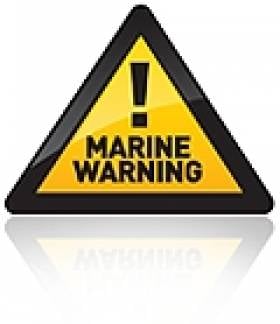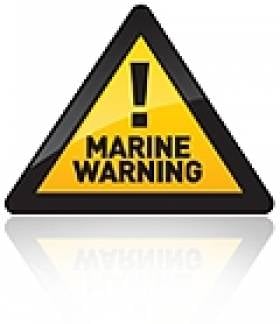Displaying items by tag: Continental Shelf
Marine Notice: 2D Seismic Survey On Continental Shelf
#MarineNotice - The latest Marine Notice from the Department of Transport, Tourism and Sport (DTTAS) advises that ENI Ireland BV, in conjunction with DCENR/PAD, is scheduled to conduct a 2D seismic survey in the Atlantic waters of the Irish Designated Continental Shelf (as defined under Part VI of UNCLOS).
The planned start of the survey is early June and, weather permitting, will continue until mid-October 2013. The seismic acquisition will be carried out by the seismic vessel M/V BGP Explorer (Call sign HP4919) and will be accompanied at all times by guard vessel M/V South (Call sign PJKE).
This proposed survey consists of 18,000km of a full fold 2D seismic survey in offshore waters beyond the 12-nautical-mile limit, and extends into international (high seas) waters.
The M/V BGP Explorer will travel at a speed of 4-5 knots, towing a single solid 10km streamer located approximately 10m below the surface. Both work vessels will be listening on VHF Channel 16 throughout the project.
All vessels, particularly those engaged in fishing, are requested to give the M/V BGP Explorer and the M/V South a wide berth and keep a sharp lookout in the relevant areas.
For co-ordinates of the seismic survey areas see Marine Notice No 25 of 2013, a PDF of which is available to read or download HERE.
Marine Notice: New Seismic Survey Of Continental Shelf
#MarineNotice - The latest Marine Notice from the Department of Transport, Tourism and Sport advises mariners that ENI Ireland BV is scheduled to conduct a 2D seismic survey in the Atlantic waters of the Irish Designated Continental Shelf.
The planned start of the survey is mid-April 2013 and, weather permitting, will continue until mid-October 2013.
The proposed survey consists of 18,000km of a full-fold 2D seismic survey in offshore waters beyond the 12-nautical-mile limit, and extends into international (high seas) waters.
The seismic acquisition will be carried out by the seismic vessel M/V BGP Explorer (Call sign HP4919), which will be accompanied at all times by guard vessel M/V Alk Explorer (Call sign HO2639). In addition, M/V De Vrouw Marie (Call sign HP9974) will act as a supply vessel for the re-supply of materials.
M/V BGP Explorer will tow a single solid 10km streamer. The vessel will travel at 4–5 knots and the streamer will be located approximately 10 metres below the surface. All vessels will be listening on VHF Channel 16 throughout the project.
The notice requests all vessels, particularly those engaged in fishing, to give the M/V BGP Explorer, the M/V Alk Explorer and the supply vessel a wide berth, and keep a sharp lookout in the relevant areas.
Details of co-ordinates for the seismic survey are included in Marine Notice No 13 of 2013, a PDF of which is available to read or download HERE.
Notice of this latest seismic survey comes after the news that the European Commission has sought an explanation from the Government over why it has not conducted environmental impact assessments for such operations in Irish waters, which are a designated whale and dolphin sanctuary.
Meanwhile, another recent Marine Notice advises passenger ship operators of the requirements for vessels engaged in the tendering of passengers between ship and shore.
Full details on the relevant provisions of the Merchant Shipping Acts are included in Marine Notice No 12 of 2013 available HERE.































































